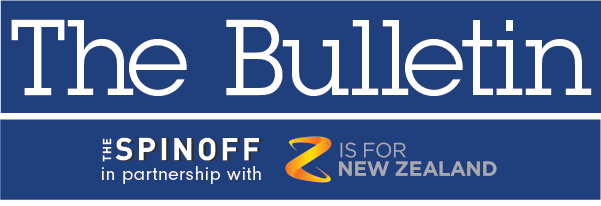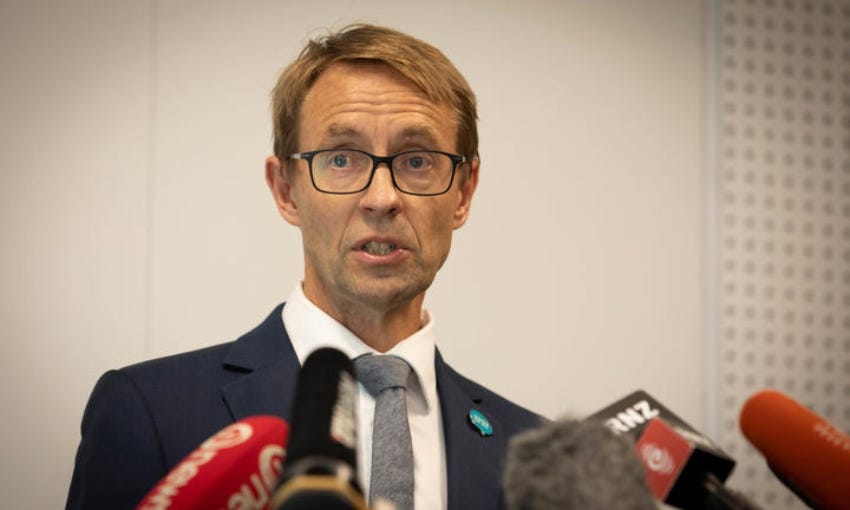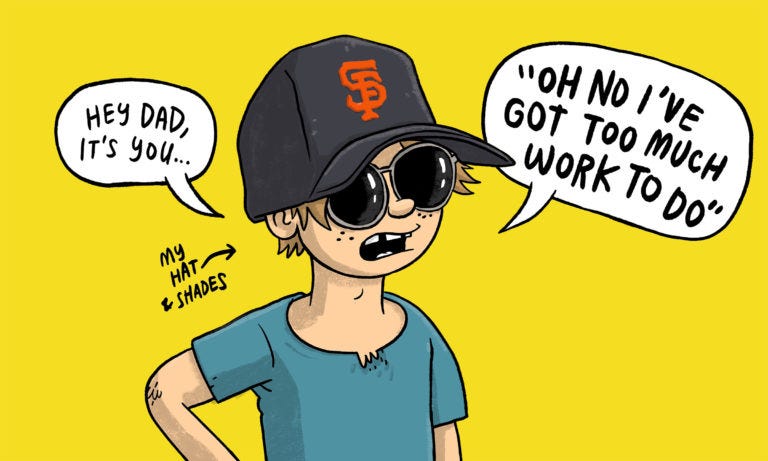
Good morning and welcome to The Bulletin for Monday 2 March, by Alex Braae for The Spinoff. Presented in partnership with Z Energy.
In today’s edition: The latest on the coronavirus in NZ, political donations in the spotlight, and overhaul of fossil fuel investment in default Kiwisaver funds.

Image: Medical director of health Dr Ashley Bloomfield (Radio NZ, Patrice Allen)
To start today, an update to the story that has dominated conversations all weekend. At the time of writing, one person has been confirmed to have contracted the Covid-19 coronavirus in New Zealand. That person – a New Zealander who had travelled from Iran – is in a stable condition and is recovering, reports Radio NZ. Among those on the flight they came in on, 18 people who were sitting near them have been contacted, and are in self-isolation. Airport procedures are currently being reviewed to assess whether different prevention approaches are needed.
The message from experts and health authorities is to prepare, but do not panic. To explain what that means in practice, I will leave it to Dr Siouxsie Wiles, who has put together an excellent and solid set of advice over a series of pieces. It is understandable to be really worried about this, and as she explains in this piece about how the coronavirus is contracted and who is most at risk, it is a serious situation. However working together, taking the advice of experts, and giving health authorities accurate information will do a lot to keep the whole community safe. In this further piece about the international response, Dr Wiles outlines how New Zealand is one of many countries that are well prepared for this, though some are not.
For employers, you are under serious legal obligations to help protect your staff and customers from contracting the virus. Business Desk has given a thorough outline of what this means under the law. If the number of people who contract the coronavirus rises significantly, then you should immediately look into any and all options around working from home and other measures to prevent personal contact. It is also advised to discuss this as a workplace proactively, so that you don't have to make decisions in a rush.
For media editors, some of you need to sort your priorities out urgently. You can either help keep people safe, or contribute to mass panic and misinformation. There's nothing stopping you from giving your audience truthful and accurate information without giving in to the latter. Remember, you're part of this community too. Also, consider adopting the WHO's terminology aimed at reducing stigma into your style guide.
Finally, wash your hands. Seriously, you should be doing this anyway, but it's among the best and simplest pieces of advice that can be given about this whole thing. Wash your hands. It helps a lot.
This week we'll be running a series of pieces around political donations, why they matter, and how they could or should be changed. If you're wondering how we're funding it – well, full transparency, it's coming out of contributions from The Spinoff Members. In the first piece in the series, professor Andrew Geddis explains why the subject is of such fundamental importance to our democracy. And in a news update, the mayors of our two biggest cities are both under investigation for their donations over the local government elections. Here's a story about Phil Goff in Auckland, and here's a story about Lianne Dalziel in Christchurch.
Kiwisaver default funds are getting an overhaul, with the government ruling out future investments in fossil fuels. As Jihee Junn reports, the Greens are claiming this as a major win, with climate change minister James Shaw saying it will ensure that people's savings will be put to good use. The government has also asserted that it is unlikely to have any negative effects on the financial performance of the funds.
However the NZ Herald (paywalled) reports free-market favouring economist Eric Crampton is concerned, because it could set a dangerous precedent of funds becoming political footballs, where new investment rules are dictated by changes in government. And further questions have been asked by Newsroom's Nikki Mandow around some of the details – such as who decides what constitutes an investment in fossil fuels, and how.
A new justice reform advocacy report has found significant disparities between Māori and Pākehā. Radio NZ reports that the data shows that among first time offenders, Māori are almost twice as likely to be sent to court, with corresponding flow-on effects. Deputy police commissioner Wally Haumaha says he has concerns with the data, as it doesn't necessarily show what crimes are being committed. However, Wellington councillor and JustSpeak board member Tamatha Paul says it's seriously concerning, and shows Māori over-incarceration needs to be addressed.
The small Otago town of Roxburgh is seriously divided over whether several trees should be chopped to make way for a skate park, reports Jo McKenzie-McLean for Stuff. They're century-old cedar trees, and the Teviot Valley Community Board unanimously decided they should be removed against the advice of Council staff. That has infuriated some residents, but those in favour of the skate park say it's the most logical location, and are surprised at how vitriolic it has all got.
Cabinet minister Shane Jones spouted some more absolute tosh about international students over the weekend. I won't bother boring you with the details of it, except to point out this piece by Toby Manhire which shows that not only was it arguably quite racist tosh, it was hypocritical tosh too. Meanwhile, heavily contested allegations have been made by a Southland business owner that he was offered Provincial Growth Fund money in order to redress the imbalance between that region and Northland – One News reported the story, Jones said it was "a load of rubbish."
We've got a very cool event coming up in Wellington, and those of you who are into politics should check it out. It's a collaboration between Spinoff Members and Verb Wellington called Politics and the Media. And it's on later this month, featuring Stuff journalist Andrea Vance, former Labour leader's office chief of staff Neale Jones, and hosted by the one and only Danyl Mclauchlan. All the details can be found here, and to be honest I'm very tempted to jump on a bus for it. Thanks to Tuatara for helping us make this happen (and for their great beer).
Got some feedback about The Bulletin, or anything in the news?
Drop us a line at thebulletin@thespinoff.co.nz

No feature today, because right now on The Spinoff we've got a lot of must-read work: Sam Brooks explains why you absolutely need to write a will. Leizi Lee hammers those who are resorting to racist stereotypes in the wake of the coronavirus. Felix Walton looks into the shift to government digital services, and how that leaves many people behind. Author Karina Kilmore tells the story of discovering secret family connections that she had never known about before.Gemma Bowker Wright lists her favourite places around Wellington to breastfeed without the added judgement or worry.Alex Casey tracks down a dog who is a massive fan of Country Calendar. Chelle Fitzgerald looks back at the history of the Undie 500 car race, a now-gone student institution. Anna McAllister recounts her fraught journey through art school, and being Māori in a deeply Pākehā space. Charlotte Muru-Lanning writes about the growth in Māori cultural meme pages. Alice Neville looks into why South Islanders are so incredibly keen on green onion chips.
Something visual: Toby Morris has come out with a brand new illustrated column about fatherhood, called Dad Man Walking. It's striking and pithy and brilliant.
And finally, this is an incredible and chilling essay from Catherine Woulfe about teachers who groom their students. It's based off a pair of book reviews, but goes deeply into the cultural effects that stories – both told and untold – can have on keeping young people safe.
Now apologies to the fellow who sent a very polite email in on Friday asking for the sport section to be cut, but there's quite a bit today. We'll start with a few about things happening off the park: The NZ Herald's Gregor Paul reports NZ Rugby is currently considering whether to allow private equity groups to buy into the All Blacks, with a sense at NZR that they haven't yet unlocked anything close to the full financial potential of the All Blacks brand. It's possible that they're right – it's also possible that the brand value is based on facets that are entirely incompatible with the vulture capital types in private equity.
Sticking with stories about unlocking the value of rugby, top schools are at odds with a plan to put much more of their sport on television, reports the NZ Herald's Dylan Cleaver. School Sport NZ is keen, but there is a sense from some of the schools themselves that it wouldn't be in the best interests of student welfare.
On the field, the Blues are showing signs that it might actually be a tolerable year for their long-suffering fans. One News reports they've gone to South Africa and taken down the previously unbeaten Stormers, for a win that keeps them safely in the tournament's playoff hunt. It could all fall apart from here of course, and a game against the Hurricanes next weekend will be a serious challenge – but later on this season the Blues will also be able to call on the services of Beauden Barrett, which won't hurt.
Boxer Joseph Parker has knocked out his journeyman opponent Shawndell Winters, in an important result for his stalling career.Newshub reports it keeps him within touching distance of the best fighters in the heavyweight division, and Parker plans to fight twice more this year to solidify his return.
And the cricket: We'll start with the White Ferns, who showed serious ticker to come back against Bangladesh in their World Cup match. After being bowled out for a very poor score of 91 in the first innings, the bowlers responded magnificently to roll Bangladesh for just 74. As Stuff reports, it's all on the line against Australia today at 5pm – win and they're in the semis, lose and they'll suffer a third straight early exit from an international tournament.
And the other cricket: India are reeling at 90-6 in their second innings, with the lead standing at just 97. 26 wickets have gone down in just two days. There might be some tempted to criticise the Christchurch pitch, but really, this was just poor application with the bat from both teams, along with two top-tier seam bowling attacks. My advice for today – have a listen on Radio Sport, because it's probably going to be the last day of test match commentary they'll ever broadcast.
That's it for The Bulletin. If you want to support the work we do at The Spinoff, please check out our membership programme.




